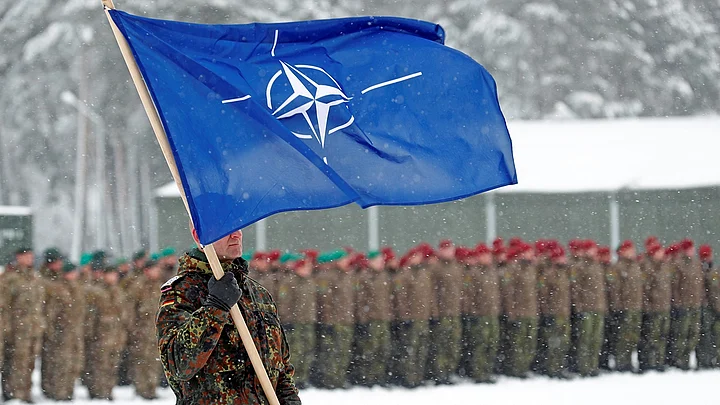Earlier this week, Sweden cleared the last hurdle in its effort to join NATO (North Atlantic Treaty Organisation) when the last holdout, Hungary, approved its application.
Sweden is now set to end two centuries of neutrality and become the 32nd member of the Western military alliance. Though these two centuries have known war and mayhem aplenty, it adopted the path of neutrality in 1812, towards the end of the Napoleonic wars, and avoided the devastation of both the First World War and the Second World War.
There can be little doubt that the reason for this major shift has been the Russian invasion of Ukraine. 22 of the European Union’s 27 member states are in NATO, an alliance helmed by the United States, and they have made $148.5 billion available to Ukraine to aid its war against Russia.
The accession of Sweden, and last year its neighbour Finland, which have added significant military capacities to NATO, is bad news for Russia, which probably did not anticipate this development when it thought it could capture Ukraine through a coup-de-main two years ago. Both countries have long histories with Russia, including exchange and loss of territories to it.
In a sense, this is a development that has been on the cards for a while. Initially, with the collapse of the Soviet Union, both countries felt that they could bring down their guard. But in recent decades as Russia re-armed, they have been worried about its policies, especially concerning Ukraine.
Finland’s accession means that NATO’s boundary with Russia has increased by 1340 km; indeed, Finland now has the longest border with Russia among all NATO countries.
Sweden Brings Substantial Military and Technological Capacity
Sweden makes excellent fighter planes like the Gripen, as well as warships and submarines. This development also makes the Baltic Sea a NATO lake, though Russia does have a small enclave between Lithuania and Poland called Kaliningrad on the Baltic Sea. It is the country’s only ice-free European port through which 57 per cent of Russian oil exports are shipped.
Further, it will be easier for the alliance to monitor the “high north” where the Russians store their second-strike nuclear weapons. But with its island of Gotland, Sweden is in a position to dominate the shipping lanes of the Baltic.
Earlier, it was Turkey that had blocked Sweden’s accession on the grounds that Sweden supported alleged Kurdish terrorists who were seeking an independent Kurdish state that included parts of Turkey. Hungary did not have any major complaints but blocked the accession anyway.
What Russia now finds is not just an enlarged NATO, but one that is more determined and this is as much a consequence of the Russian invasion as the rhetoric coming out of the United States.
Republican candidate Donald Trump’s recent remarks, questioning the value of the alliance and virtually encouraging the Russians to attack Europe, have rattled the Europeans. They have forced them to confront the fact that they have been too slow to spend the money that is needed for their defence and have depended too much on the US to take up the slack.
Europe is Anxious
Russia’s grinding success on the eastern front in Ukraine and its ability to overcome the economic obstacles imposed by Western sanctions is now being viewed in Europe as a dangerous signal.
The immediate task for both Finland and Sweden is to integrate their defence planning with NATO. Instead of working out their own homeland defence, they will have to find their place in the larger NATO plan and it will take a few more years for the integration to succeed.
The mood in Europe can be gauged by the fact that on Monday a debate was triggered after French President Emmanuel Macron suggested that Western troops could be sent to Ukraine. Conventional wisdom has been that such a move could trigger a larger war between NATO and Russia. But Macron’s comments, perhaps aimed at shaking up the complacency of Europeans, were rejected by his NATO partners.
The White House declared it would not send troops to Ukraine and Germany, the UK, Italy, Spain, Poland and the Czech Republic quickly distanced themselves from the idea.
The problems of Ukraine and the possibility of a return of Donald Trump are concentrating minds in Europe. At the end of last month, NATO began Steadfast Defender, its largest military exercise since the Cold War which will end in March. The exercise involves nearly 100,000 troops and incorporates land, air, sea, cyber and space operations. Sweden had earlier been designated as a special invitee and will participate in its activities.
(The writer is a Distinguished Fellow, Observer Research Foundation, New Delhi. This is an opinion piece and the views expressed above are the author’s own. The Quint neither endorses nor is responsible for the same.)
